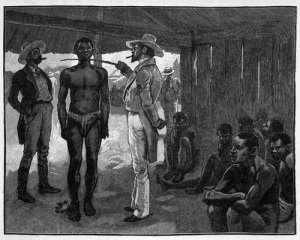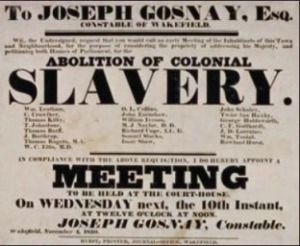Summary
At the beginning of this reading, Aminata was leaving with the slave traders to try and return to her home village of Bayo. Despite numerous warnings from the people around her, Aminata decided to proceed with this search.
A couple weeks into the journey, Aminata began to grow ill. While she was resting one day, she heard the slave traders’ conversation and realized they intended to sell her back into slavery. Deciding she valued her freedom far more than the chance of returning home, Aminata sneaked away from the traders. She eventually came upon an African village and sought shelter there until she got well again.
In that village, Aminata told the Africans the stories of her travels, and her journeys as a slave and as a free black. They were fascinated by her tales, and Aminata finally became the djeli (storyteller) she had longed to be since childhood.
After leaving the village, Aminata decided to sail to London. There she met up with John Clarkson once more, and began helping him and his fellow Abolitionists with their cause. The Abolitionists asked Aminata to write down the story of her life, and she agreed on the terms that she would be able to tell the story in the way that she wanted.
Later on, Aminata was reunited with her daughter, May, who had escaped from the Witherspoons. The story ends with Aminata waiting news from the publisher (who happened to be May’s fiance) about her book.
Reflection
I was a bit disappointed by the ending of this book. I felt that it was much too predictable, and furthermore I thought the ending was rather anticlimax. I had the same issues as the last section, with Aminata being portrayed as too perfect, and everyone else holding her to an unrealistically high esteem.
I had hoped for something a bit more climatic for the ending to this book, since so many events have happened. The Slave Trade was abolished in England in 1807 – a mere five years after this book’s ending. I felt that Lawrence Hill could have changed the years of Aminata’s life just a bit so that we could get her perspective on the ending of the slave trade. I felt that getting her opinion on something like that would be a much more interesting ending than just her waiting to hear about her book being published.



I agree with you completely – I, too, was disappointed by the predictability of the end of the novel. It felt cheap and rushed yet unrealistic too. Overall, I felt cheated by Hill when I finished the novel because it had such promise in the first few sections but seemed to fall flat in the end. I’m not sure that there would be a way to end the novel without doing an injustice to the first three books, however. Because Hill chose to narrate the book in past tense as Aminata’s story from London we know that Aminata survives all of the atrocities she faces, which is rather disappointing. It’s sort of like starting to read a book and knowing that there are multiple novels afterwards so you know that the main character lives. I think that the only way for this to end well would have been Aminata’s death, which would have been equally weak and is, generally, a poor writing technique for a professional to utilize.
LikeLiked by 1 person
Although it was very predictable, I felt that the ending was suitable after the many traumatizing events that happened to Aminata throughout her life. There was promise that the book was going to steer in the direction of how the slave trade was abolished; it was not included in the ending which was disappointing.
LikeLiked by 1 person